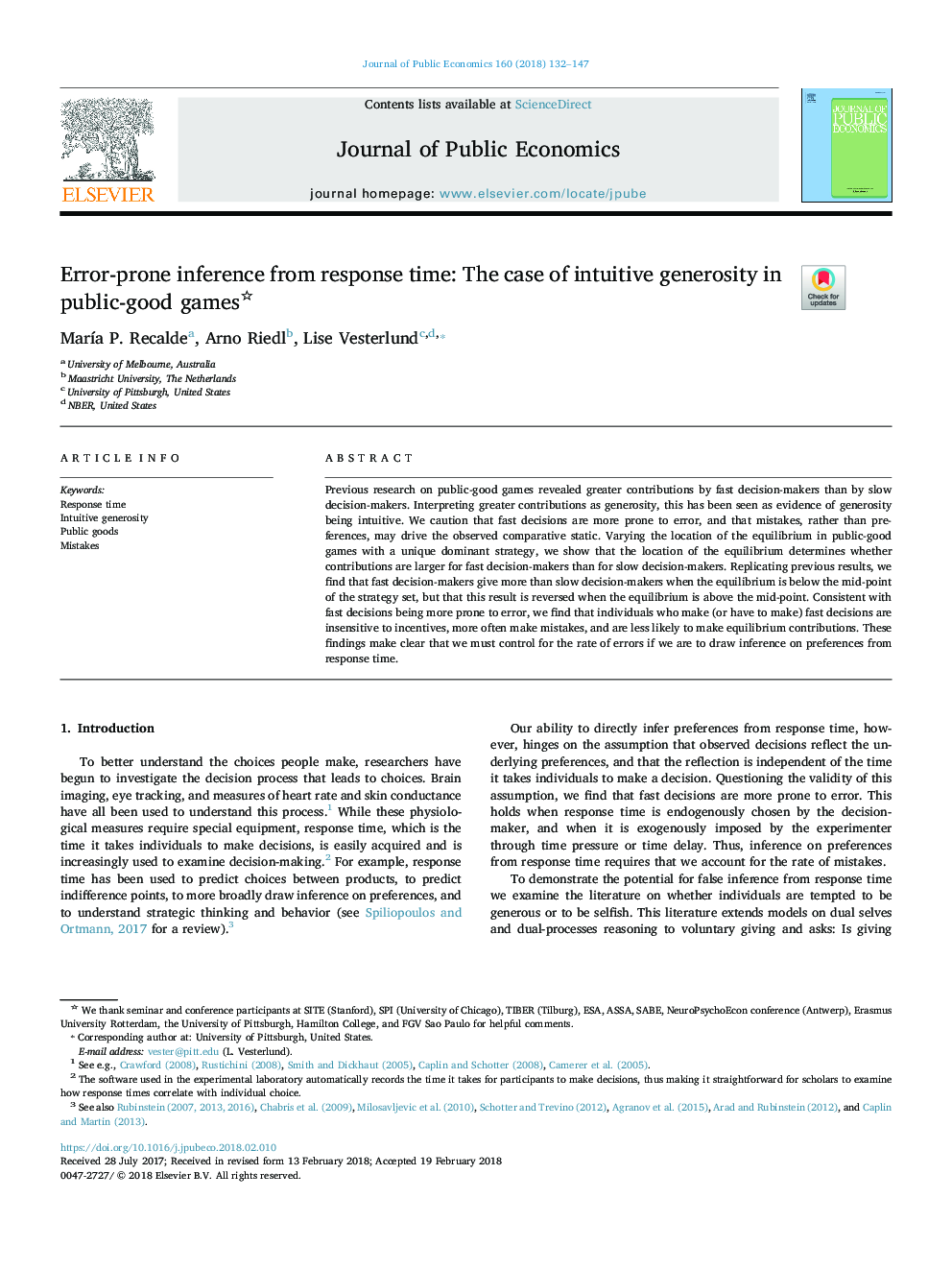| Article ID | Journal | Published Year | Pages | File Type |
|---|---|---|---|---|
| 7369469 | Journal of Public Economics | 2018 | 16 Pages |
Abstract
Previous research on public-good games revealed greater contributions by fast decision-makers than by slow decision-makers. Interpreting greater contributions as generosity, this has been seen as evidence of generosity being intuitive. We caution that fast decisions are more prone to error, and that mistakes, rather than preferences, may drive the observed comparative static. Varying the location of the equilibrium in public-good games with a unique dominant strategy, we show that the location of the equilibrium determines whether contributions are larger for fast decision-makers than for slow decision-makers. Replicating previous results, we find that fast decision-makers give more than slow decision-makers when the equilibrium is below the mid-point of the strategy set, but that this result is reversed when the equilibrium is above the mid-point. Consistent with fast decisions being more prone to error, we find that individuals who make (or have to make) fast decisions are insensitive to incentives, more often make mistakes, and are less likely to make equilibrium contributions. These findings make clear that we must control for the rate of errors if we are to draw inference on preferences from response time.
Keywords
Related Topics
Social Sciences and Humanities
Economics, Econometrics and Finance
Economics and Econometrics
Authors
MarÃa P. Recalde, Arno Riedl, Lise Vesterlund,
